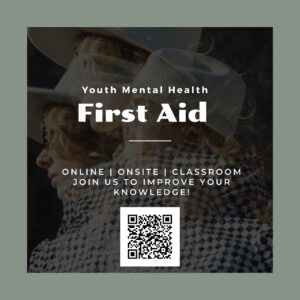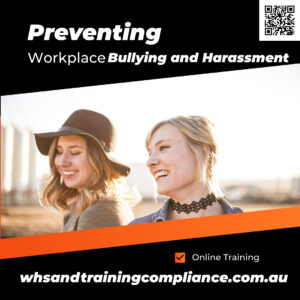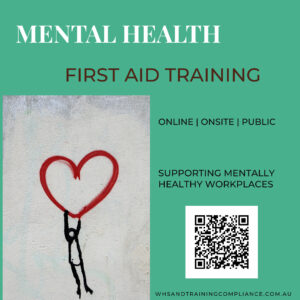Work-related stress, or the stress experienced as a result of work-related factors, is a compelling issue that is progressively expanding both globally and across industries. This form of stress not only affects the individual directly, but also has a ripple effect on their loved ones, friends, and colleagues, thereby extending its reach even further. Importantly, workplace stress compromises the overall productivity and efficiency of any organization. Given the increasing prevalence of work-related stress, it becomes imperative for individuals and organizations to not only be aware of its existence, but also to recognise the signs of stress in order to address it effectively. Recognizing the signs of stress is crucial for managing work-related stress effectively. This necessitates the provision of mental health training to individuals within the organizational structure. By incorporating mental health training into workplace strategies, employers can equip their workforce with the necessary tools to identify and address signs of stress promptly.
By fostering a supportive and nurturing work environment, organizations can enhance overall mental well-being and reduce the negative impact of work-related stress on employees.
We all know what stress feels like and have experienced it at some stage…at home, school or work. Come on you have never had your internet drop out! Or no phone network. While the stress is normal, if it is ongoing, it can become a problem.
I thought at one stage winning the lotto would remove the stress factor in my life, but then thinking about buying the lotto ticket, and how I would spend the money, made me more stressed. You know right?
Facts about work-related stress:
- Second most common compensated illness,
- $542 million is paid in worker’s compensation for work-related mental health conditions,
- 2011-2012 and 2014-2015, around 91% of workers compensation claims involving mental health condition were related stress.
- Based on the National Health and Safety Commission, work-related stress accounts for the longest stretches of absenteeism
Signs of work-related stress
Stress affects the mental and physical well-being of a person. Some common physical signs of stress are headaches, low energy, upset stomach, aches, pains, tense muscles, and insomnia.
Some of the mental signs are feeling overwhelmed or frustrates, feeling guilty or unhappy, being irritable, losing confidence, thinking negatively, excessive worrying and memory problems.
How Managers can help reduce stress in the workplace?
It is important to recognize work-related stress as a significant health and safety issue, and some simple things managers can do to reduce the stress in the workplace are:
- Setting clear goals
- Creating a safe environment
- Encouraging workplace wellness
- Ensuring workers are not overloaded with work
- Offering a flexible working environment
- Supporting open door policies
- Workplace recognition
- De-stigmatising work-related stress by openly recognising it is a genuine problem
- Discussing issues and grievances with employees and take the appropriate actions and,
Most importantly, keeping their eyes open, to recognise the signs of stress on an employee. Don’t just wait for the Are U Okay Day? Start the conversation when you recognise the signs of stress. and educate and inform the employee about the EAP programs. Not sure about how to help and support someone in stress, or uncomfortable, in the situation.
Then it would be beneficial for you to attend Mental Health First Aid Training. During the course, you will learn how the start the conversation, support the person in stress till they seek professional help.
How can an individual reduce work-related stress?
- Exercise regularly. It has been proven that regular exercise reduces stress, simply go for a walk.
- Get enough sleep.
- Planning, scheduling and prioritising your work according to deadlines.
- Communicate and be open. Speak to your colleagues and managers.
- Take a break. Small incremental breaks such as stepping away from your desk.
- Eat sensibly. Eating the right foods can have a positive effect on your mood.
- If available, contact employee assistance programs within your workplace.
Most importantly look after yourself. If you are in a stressful situation, remember there is hope for recovery, each person’s recovery journey is different than others. The longer you delay getting help and support the more difficult the recovery can be. Talking to your family, friends, colleagues and seeking help from professionals can assist you on the journey to recovery.
Access Mental Health Awareness Books from Amazon: Mental Health Books
For more details Contact us
Mental Health First Aid training, contact us, and we will assist you and your workplace. Sebnem Bulan-Worth is an accredited Principal Master Mental Health First Aid Instructor, providing mental health training across Australia.















